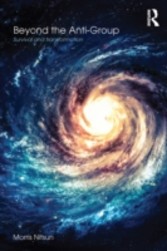Search and Find
Service

Beyond the Anti-Group - Survival and transformation
",Beyond the Anti-group: survival and transformation", builds on the success of Morris Nitsun's influential concept of the Anti-group, taking it into new domains of thought and practice in the current century. The concept focuses on anxiety and hostility within, towards and between groups, as well as the destructive potential of groups. In Beyond the Anti-group",. Morris Nitsun continues his inquiry into the clinical implications of the anti-group but also explores the concept beyond the consulting room, in settings as wide-ranging as cultural and environmental stress in the 21sta century, the fate of public health services and the themes of contemporary art.Groups are potentially destructive but also have the capacity for survival, creativity and transformation. Focusing on the interplay between the two, Morris Nitsun explores the struggle to overcome group impasse and dysfunction and to emerge stronger. By tracking this process in a range of cultural settings, the author weaves a rich tapestry in which group psychotherapy, organizational process and the arts come together in unexpected and novel ways. The author draws on group analysis and the Foulkesian tradition as his overall discipline but within a critical frame that questions the relevance of the approach in a changing world, highlighting new directions and opportunities. Readers of Beyond the Anti-group: Survival and Transformation will be stimulated by the depth, breadth and creativity of the author's analysis and by the excursion into new fields of inquiry. The book offers new impetus for psychotherapists, group analysts and group practitioners in general, students of group and organizational processes, and those working on the boundary between psychotherapy and the arts.a
All prices incl. VAT












